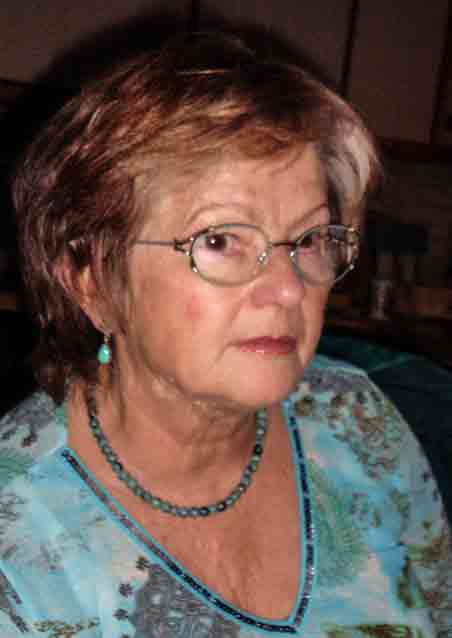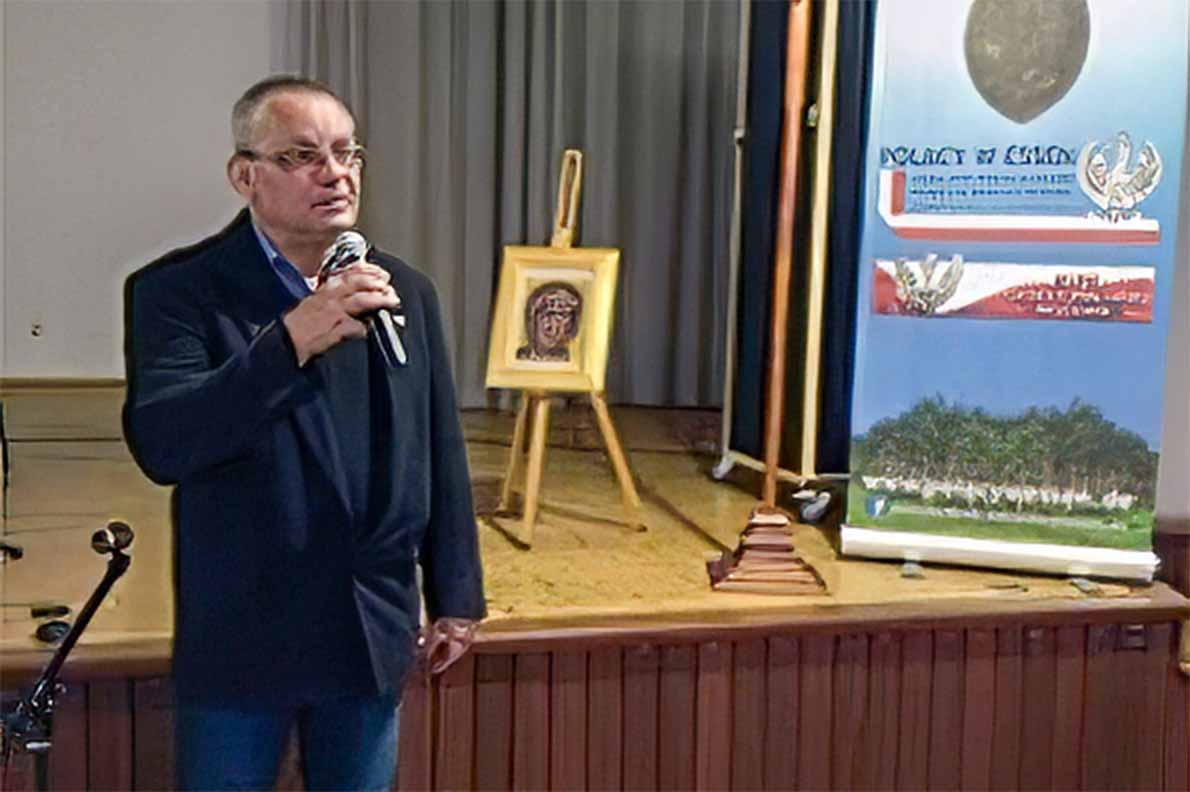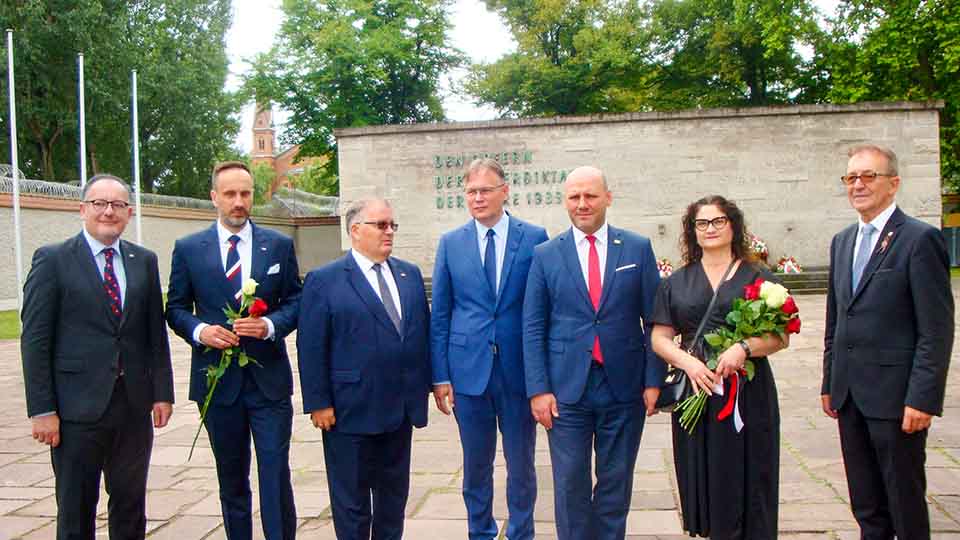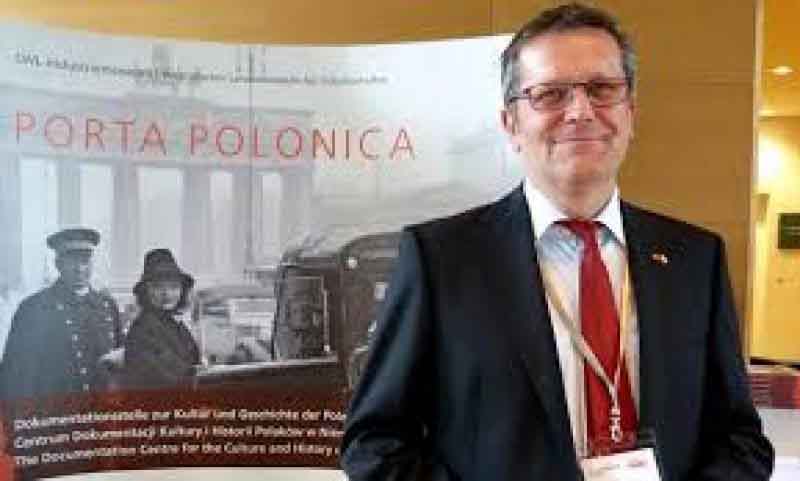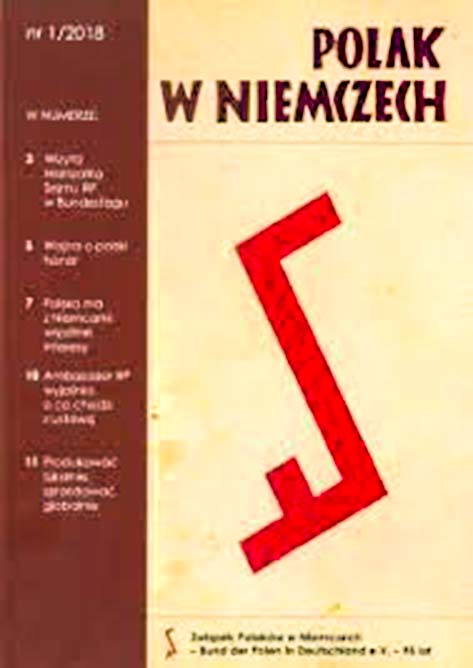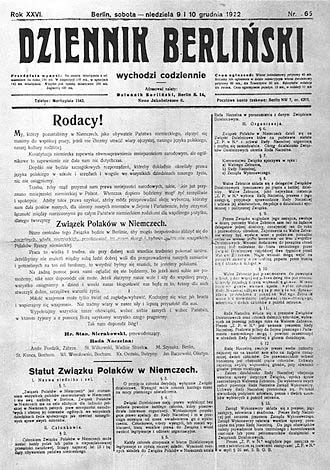Scattered all over the world,
Chased into foreign wars,
Yet we have gathered
Into a single armed circle.
Scattered around the world, scattered around Germany, we have gathered… this time in Essen!
The event that I want to inform you about took place on November 13 and 14, 2021 in Essen, North Rhine-Westphalia, Germany. These were two days saturated with love and attachment to Poland and a sense of solidarity with the country of origin of the participants of this "Great Festival", which was organized by the "Poles in Essen" Group. The meeting was attended not only by "German Poles" living in the vicinity of Essen, but also many invited guests from Poland and Germany.
This event was to celebrate two important Polish anniversaries: the Regaining of Independence in 1918, and the creation of the Independent Self-Governing Trade Union "Solidarity" in 1980.
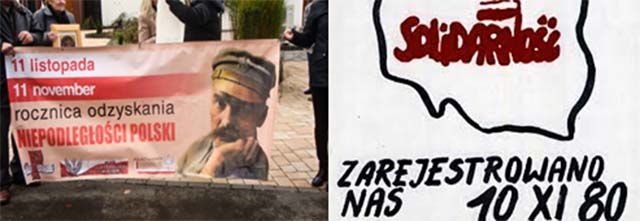
Two Anniversaries
The activity of the "Poles in Essen" group started in 1998. At the beginning, it was supposed to provide advisory assistance to Poles living in Germany, from filling in forms to attorney's advice. Over time, the goals and character have grown into wider dimensions and, today, it is one of the most active groups of the Polish diaspora in Germany. It is chaired by Wojciech Kusy, thanks to whom — and thanks to the commitment of all members of the Group, which Wojtek always emphasizes — Poles in Essen prepared a real festival of Polishness.
Lectures by Dr. Anna Kołakowska, for example, "The road to the power of Poland is interrupted," and a beautiful concert by Andrzej Kołakowski, whose motto were the words: "Better to die for Poland today, than to live in a subdued country!"
The speeches of guests from Poland and Germany were also interesting, including the ones by the Director of the Polish Institute in Düsseldorf, Prof. Wojciech Poczachowski, by the President of the Union of Poles in Germany, Jozef Malinowski, or Eugeniusz Karasiński, the chairman of the Association of the Repressed During Martial Law in the Silesia-Dąbrowa Region.

Polish national symbols
The Polish diaspora celebrations in Essen began with the Holy Mass "For the Homeland", celebrated in the Church of St. Clement. The celebrating priest started it by reading the words of our great countryman, Saint John Paul II: “Homeland is fatherhood, it is also a spiritual heritage, national culture, tradition and values (...). Patriotism is not only love of what is native, love of history, tradition, language, or the native landscape itself, but also love that includes the works of countrymen and the fruits of their genius." Polish hearts beat the most during the march through the streets of Essen. These words of St. John Paul II were realized through it.
The march was accompanied by symbols enhancing the nature of this patriotic manifestation. At the head of the march — the cross was carried!
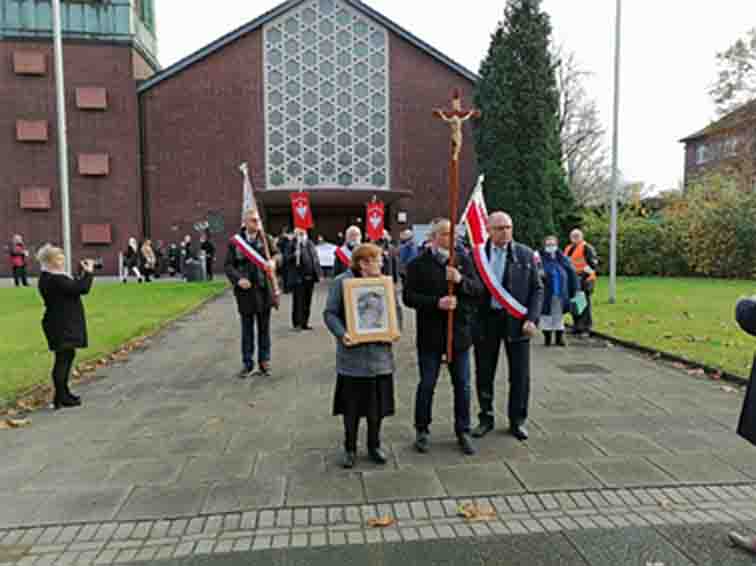
Only under the cross, only under this sign, can Poland really be Poland and a Pole really be a Pole
All the marchers sang under the direction of Andrzej Kołakowski. First, "Poland Is Not Lost Yet" (Jeszcze Polska nie zginęła, the Polish national anthem) — all the stanzas, then the "First Brigade" (Pierwsza Brygada) with the emphasis on the words "on a pile, we have thrown our fate on a pile, on a pile". Then "God, who Poland..." (Boże coś Polskę) and we ended up cheering ourselves with the song "March, March Polonia!".
... We have gathered Into a single armed circle.
March, march Polonia, Our brave nation, We will rest after work In Fatherland's homestead.
The white eagle will fly over The disgraced royal city, The guns roar, the bells groan, The Poles for glory.
The Muscovite will not win Poland with a scabbard. As long as our slogan is For Freedom and our Fatherland!
The entire march through the streets of Essen took about an hour.
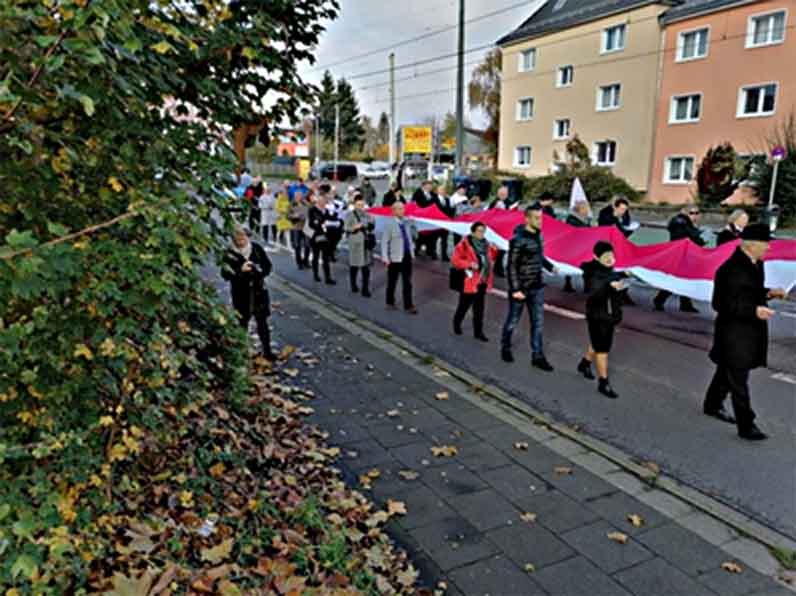
With a white and red flag and patriotic songs on the lips
There remains hope that this Polish sentiment will be sustained in Germany, because many young people participated in the march, families with small children, sometimes three generations, such as Grażyna and Tadeusz from the Essen area, and their daughter with her husband and little daughter, who waved the white and red flag. Every Polish family has its achievements and history here.
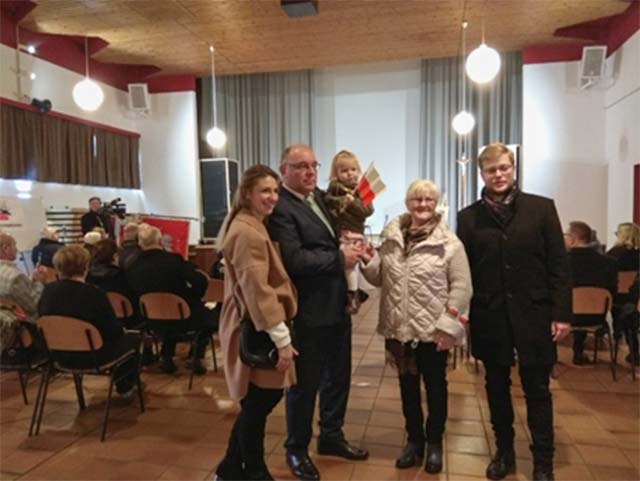
German citizenship — Poland in the heart!
After the march, there was another strong Polish accent: a concert of patriotic poems-songs by Andrzej Kołakowski. It was a musical illustration of great historical events contained in the paintings of Artur Grottger, conveyed to the participants of this Polish fest with a beautiful voice and guitar accompaniment.
After the march in Essen, the continuation of the demonstration of Polishness took place in the Catholic Mission Center in Germany, 165 km (103 miles) away, called the "Concordia House". Concordia was founded in 1994. It is a gift from God to our compatriots living in Germany. Here, children and young people can come to summer camps not only to rest, but also to practice the language of their fathers and grandparents. Adults come here from all over Germany for retreats.
It is also here that the meetings of the Patriotic Communities of Western Europe are held. It is a place of silence and contemplation where every person who seeks faith can rediscover God and find himself. The owner is the Christian Center for the Promotion of Culture, Tradition and Polish Language in Germany, and the director is Rev. Marcin Maślak
In Concordia, a plaque commemorating the establishment of the Independent Self-Governing Trade Union "Solidarity" was officially unveiled and blessed. It is the seventh plaque in a row. It was (like all the previous ones) funded by the contributions of the "Poles in Essen" Group.
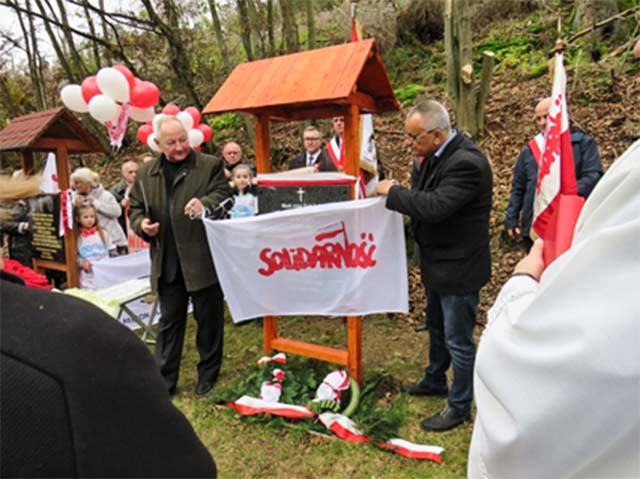
Wojtek Kusy (right) and Eugeniusz Karasiński unveil the plaque
Andrzej Rozpłochowski was invited to the ceremony, but unfortunately he was unable to come to Germany due to illness. Back then, we did not think that this hero of "Solidarity" would soon, on December 20, go to the Lord. Thus, the letter from the chairman of the Association, Piotr Duda, was read by Eugeniusz Karasiński, as a substitute.
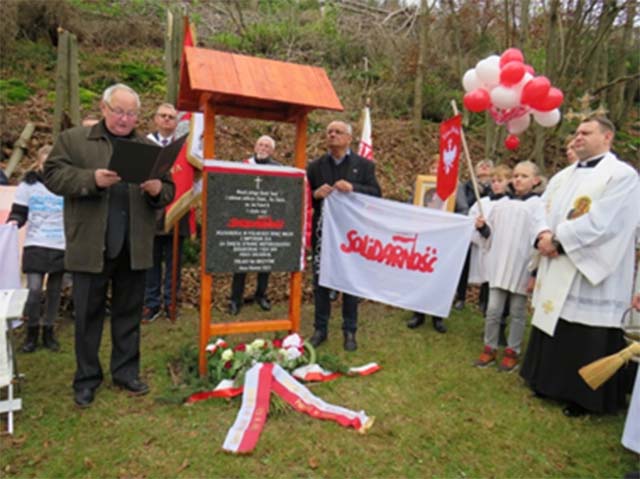
Reading a congratulatory letter from the chairman of NSZZ "Solidarność"
The Polish national anthem was sung afterwards and wreaths were laid. Tribute was paid to those whose goal in 1980 was to fight to defend human dignity. Dr. Lechosław Belniak expressed it beautifully, when talking about their heroism, quoting the words of a member of the English House of Lords, Baron W. Rees-Mogg: “To be a hero, you don't necessarily have to be a Pole. But it helps!"
All seven plaques commemorate important historical moments for our nation. The newest, freshly dedicated, is an expression of tribute and gratitude of Poles living in Germany to their heroic compatriots of 1980.
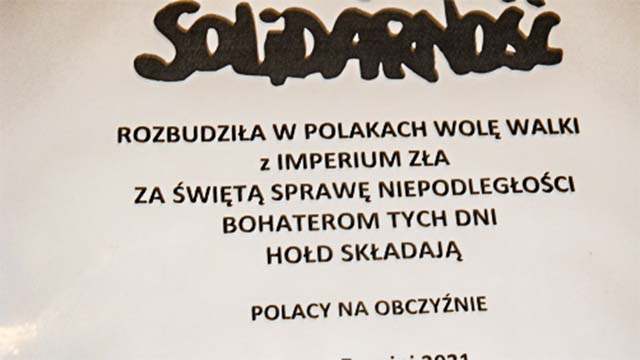
Poles in Abroad — in a tribute to the Heroes
There will be even more plaques, assured Wojciech Kusy, who decided on their subject and order. They are all made of granite, situated on a hill next to the "Concordia" Polish Community Center.
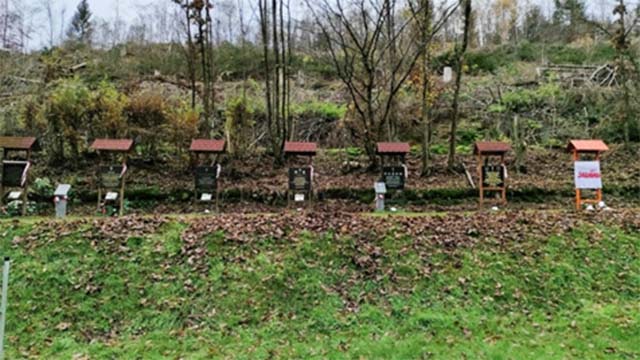
Not for revenge, but for memory the Victims are crying out!
These plaques are dedicated to: "In Memory of 96 Poles, Headed by President Lech Kaczyński, Who Died on April 10, 2010 in the Smolensk Catastrophe", "The Victims of Genocide in the Eastern Borderlands", "On the Centenary of the Rebirth of the Republic of Poland", "Unbreakable Soldiers and all Heroes and Victims of That Time", "Unbreakable Priests and Secular Witnesses of Christ's Truth," and "The Poles - Winners of the Battle of 1920".
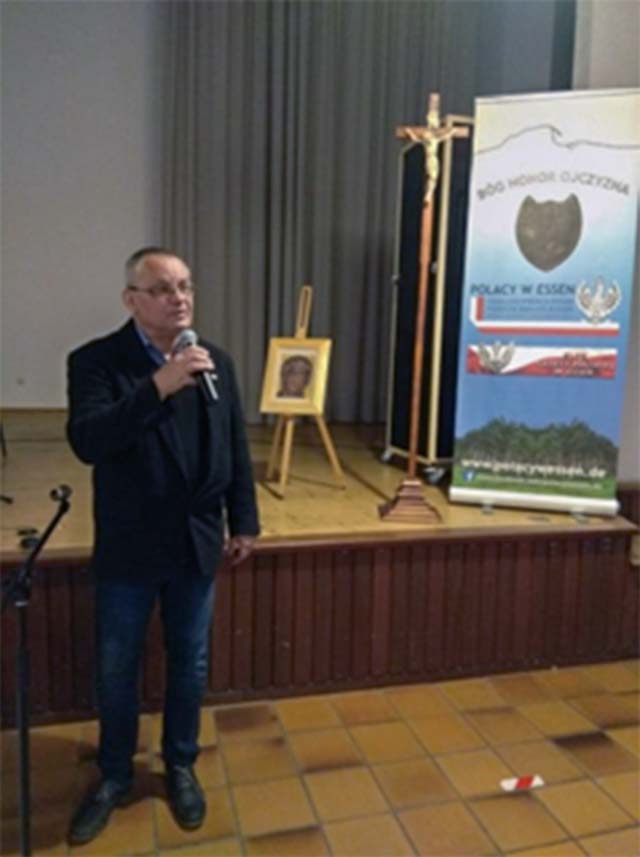
Wojtek Kusy - author of texts, organizer of Polonia Meetings, moderator
All patriotic initiatives taking place in Westphalia-Rhineland are initiated by the leader of the group, supported by active "German Poles".
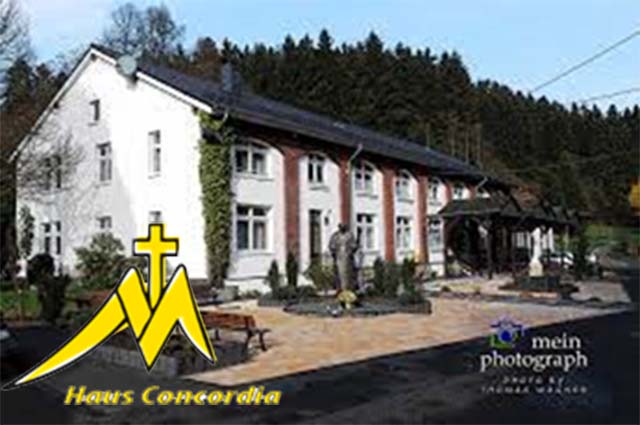
Haus Concordia - House Concordia (SourceZródło: wikipedia.de)
The article uses photos by: the artist-photographer Joachim Pawliczek, the author of the article, and other participants of the ceremony.
Translation from Polish by Andrew Woźniewicz.



 auf Deutch
auf Deutch
